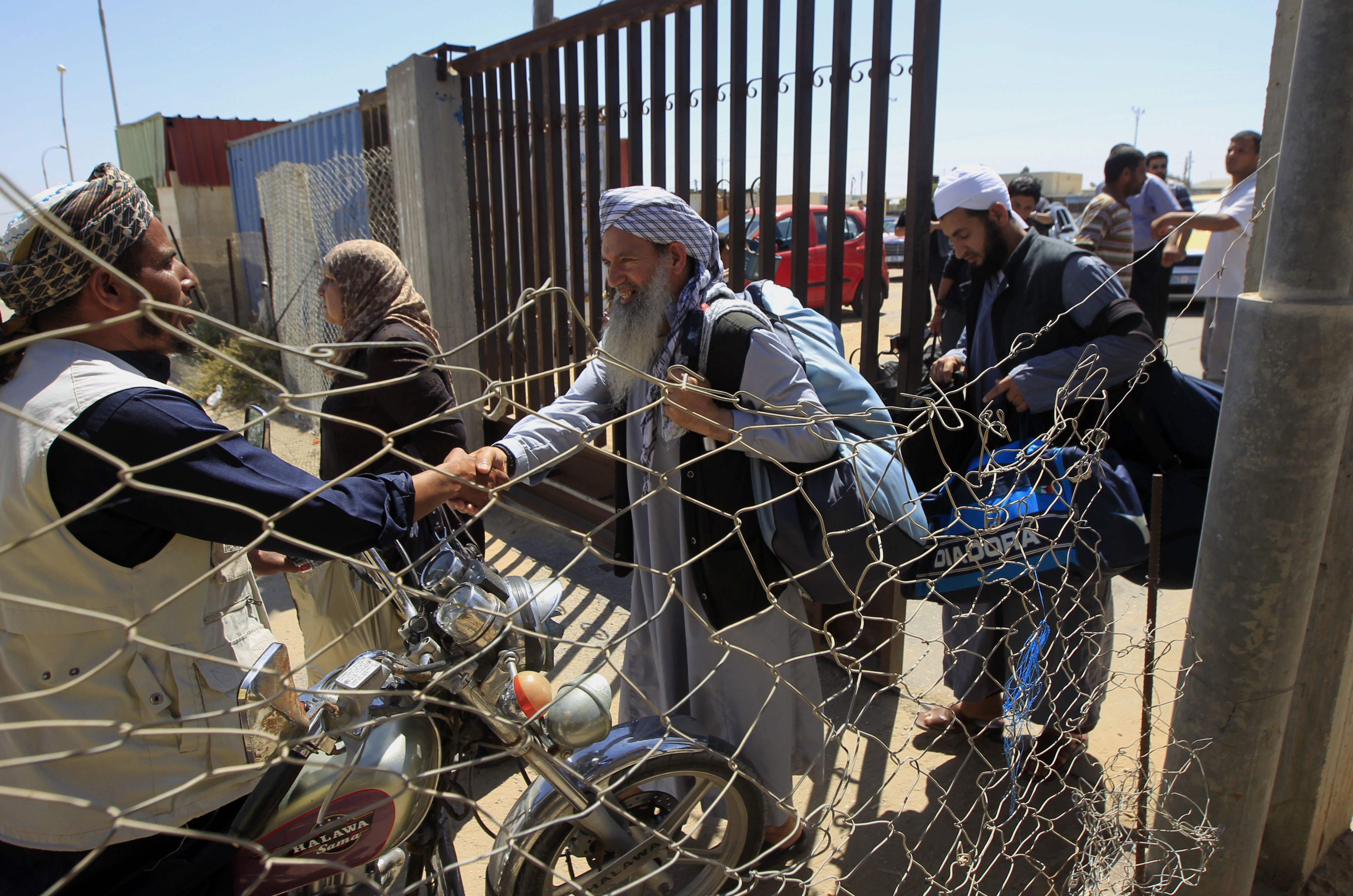COPENHAGEN: The past decade has proven again and again that empowering women worldwide holds the key to solving many seemingly intractable issues that have otherwise stymied policymakers. Poverty in the developing world seemed ineradicable until micro-lenders saw millions of low-income, destitute women as potential entrepreneurs. Involving African women in decision-making about crop production turns out to enable environmentally sustainable farming practices. Runaway population growth becomes controllable when women have access to literacy and business opportunities as well as to contraception.
Could the tensions and conflicts surrounding the issue of immigration in Europe be yet another issue for which the empowerment of women holds a solution?
In a recent visit to Copenhagen to commemorate International Women’s Day, I took part in many conversations that duplicate others throughout Europe: citizens from across the political spectrum were struggling with the issue of non-European immigration and the cultural tensions that have ensued. What does it mean to be Danish, German, or French in the presence of these millions of newcomers, most of whom come from non-democratic societies?
Some of this anxiety is pure racism; but some is not. What would “integration” mean, and how is it achieved without the loss of cherished civil-society values? These are not necessarily xenophobic questions: a post-enlightenment civil society, with a free press and due process, is a precious thing, and those values should not be sacrificed to politically correct moral relativism.
This issue has been given new urgency by the arrests in Ireland of alleged jihadists from several countries who are accused of plotting to murder a Swedish cartoonist who drew an image of the prophet Mohammed as a dog. Across Europe, the discussions are growing more intense as anti-immigration platforms gain supporters in otherwise liberal countries, from Germany to France to traditionally inclusive and tolerant Denmark itself.
Then I witnessed the prototype of a true solution. I met Elisabeth Møller Jensen, the director of KVINFO, “the Danish center for information on gender, equality and ethnicity” — an extraordinary organization funded by Denmark’s Ministry of Culture. One of its many innovative programs is already showing results in terms of genuinely integrating immigrant families into Danish society. By addressing immigrant women — and by viewing them as potential leaders, rather than as quiescent potential maids or service workers — KVINFO is enabling their families to witness the benefits of an open civil society in their own lives.
KVINFO began a “mentor network” aimed at immigrant and refugee women in 2002. By 2010, it had 5,000 participants, had won awards and international acclaim for best integrative practices, and is being replicated throughout Denmark – and observers are exploring programs or partnerships modeled upon it in Canada, Spain, Portugal, and Norway. The program pairs refugee and immigrant women in a one-to-one mentoring relationship with women who are established leaders at all levels of Danish society.
The pairing is not cursory. A careful matchmaking process unites the interests and goals of the women on both sides, and already has paid amazing dividends. Women who were journalists, engineers, or scientists in their countries of origin — and who could not get jobs as checkout cashiers in Denmark — have been paired with Danish counterparts and are now back in school, or working in research.
But even women who arrive with no higher education or professional skills create an “action plan.” They learn from their mentors what options there are, how to proceed, and what to do to reach their objectives. As they enter the workforce, their language skills improve, their household income soars, and their children see firsthand a woman in a respected, economically valued role. Their loved ones thus learn how to thrive in a European context — occasionally coming to KVINFO events and benefiting from their mothers’ expanding network of contacts.
So, rather than feeling exploited and condemned indefinitely to the fringes of a Northern European society — and thus vulnerable to the stirrings of demagogues and extremists — these women’s children grow up fully familiar with Danish civil society, well informed about higher education and professional opportunities, and hopeful rather than cynical. By empowering women, the whole family is lifted up and, in a supportive rather than a colonizing way, “Europeanized” in the best sense.
I am often struck by the way many Europeans use arms-length euphemisms when talking about immigrants: they want immigrants to feel “welcome” or “comfortable.” I always wonder, “But do you want them to feel French, or German, or Norwegian?”
To be fully integrated, Muslim and other newcomers to European countries must be welcomed not as perpetual visitors – even if, ideally, as nicely treated visitors — but rather as family members, as the American model does (or aspires to do). As Møller Jensen put it, “I want these children to feel Danish.” These young people and Denmark itself will benefit, as this “KVINFO generation” grows up with a genuine stake in Danish civil society, and seeing the world as Danes, not as guests.
Naomi Wolf is a political activist and social critic whose most recent book is Give Me Liberty: A Handbook for American Revolutionaries. This commentary is published by DAILY NEWS EGYPT in collaboration with Project Syndicate (www.project-syndicate.org).



